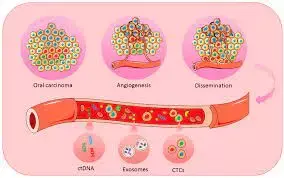- Home
- Medical news & Guidelines
- Anesthesiology
- Cardiology and CTVS
- Critical Care
- Dentistry
- Dermatology
- Diabetes and Endocrinology
- ENT
- Gastroenterology
- Medicine
- Nephrology
- Neurology
- Obstretics-Gynaecology
- Oncology
- Ophthalmology
- Orthopaedics
- Pediatrics-Neonatology
- Psychiatry
- Pulmonology
- Radiology
- Surgery
- Urology
- Laboratory Medicine
- Diet
- Nursing
- Paramedical
- Physiotherapy
- Health news
- Fact Check
- Bone Health Fact Check
- Brain Health Fact Check
- Cancer Related Fact Check
- Child Care Fact Check
- Dental and oral health fact check
- Diabetes and metabolic health fact check
- Diet and Nutrition Fact Check
- Eye and ENT Care Fact Check
- Fitness fact check
- Gut health fact check
- Heart health fact check
- Kidney health fact check
- Medical education fact check
- Men's health fact check
- Respiratory fact check
- Skin and hair care fact check
- Vaccine and Immunization fact check
- Women's health fact check
- AYUSH
- State News
- Andaman and Nicobar Islands
- Andhra Pradesh
- Arunachal Pradesh
- Assam
- Bihar
- Chandigarh
- Chattisgarh
- Dadra and Nagar Haveli
- Daman and Diu
- Delhi
- Goa
- Gujarat
- Haryana
- Himachal Pradesh
- Jammu & Kashmir
- Jharkhand
- Karnataka
- Kerala
- Ladakh
- Lakshadweep
- Madhya Pradesh
- Maharashtra
- Manipur
- Meghalaya
- Mizoram
- Nagaland
- Odisha
- Puducherry
- Punjab
- Rajasthan
- Sikkim
- Tamil Nadu
- Telangana
- Tripura
- Uttar Pradesh
- Uttrakhand
- West Bengal
- Medical Education
- Industry
DNA analysis of saliva may predict treatment response and relapse in oral cancer patients: Study

DNA analysis of saliva may predict treatment response and relapse in oral cancer patients suggests a new study published in the Oral Oncology.
The incidence of head and neck squamous cell carcinoma (HNSCC) continues to increase and although advances have been made in treatment, it still has a poor overall survival with local relapse being common. Conventional imaging methods are not efficient at detecting recurrence at an early stage when still potentially curable. The aim of this study was to test the feasibility of using saliva to detect the presence of oral squamous cell carcinoma (OSCC) and to provide additional evidence for the potential of this approach. Fresh tumor, whole blood and saliva were collected from patients with OSCC before treatment. Whole exome sequencing (WES) or gene panel sequencing of tumor DNA was performed to identify somatic mutations in tumors and to select genes for performing gene panel sequencing on saliva samples.
Results: The most commonly mutated genes identified in primary tumors by DNA sequencing were TP53 and FAT1. Gene panel sequencing of paired saliva samples detected tumor derived mutations in 9 of 11 (82%) patients. The mean variant allele frequency for the mutations detected in saliva was 0.025 (range 0.004 – 0.061). Somatic tumor mutations can be detected in saliva with high frequency in OSCC irrespective of site or stage of disease using a limited panel of genes. This work provides additional evidence for the suitability of using saliva as liquid biopsy in OSCC and has the potential to improve early detection of recurrence in OSCC. Trials are currently underway comparing this approach to standard imaging techniques.
Reference:
Ahmed A. Ahmed, Mateja Sborchia, Hannah Bye, Maria Roman-Escorza, Ariella Amar, Rhonda Henley-Smith, Edward Odell, Mark McGurk, Michael Simpson, Tony Ng, Elinor J. Sawyer, Christopher G. Mathew. Mutation detection in saliva from oral cancer patients, Oral Oncology, Volume 151, 2024, 106717, ISSN 1368-8375, https://doi.org/10.1016/j.oraloncology.2024.106717. (https://www.sciencedirect.com/science/article/pii/S1368837524000356)
Dr. Shravani Dali has completed her BDS from Pravara institute of medical sciences, loni. Following which she extensively worked in the healthcare sector for 2+ years. She has been actively involved in writing blogs in field of health and wellness. Currently she is pursuing her Masters of public health-health administration from Tata institute of social sciences. She can be contacted at editorial@medicaldialogues.in.
Dr Kamal Kant Kohli-MBBS, DTCD- a chest specialist with more than 30 years of practice and a flair for writing clinical articles, Dr Kamal Kant Kohli joined Medical Dialogues as a Chief Editor of Medical News. Besides writing articles, as an editor, he proofreads and verifies all the medical content published on Medical Dialogues including those coming from journals, studies,medical conferences,guidelines etc. Email: drkohli@medicaldialogues.in. Contact no. 011-43720751


